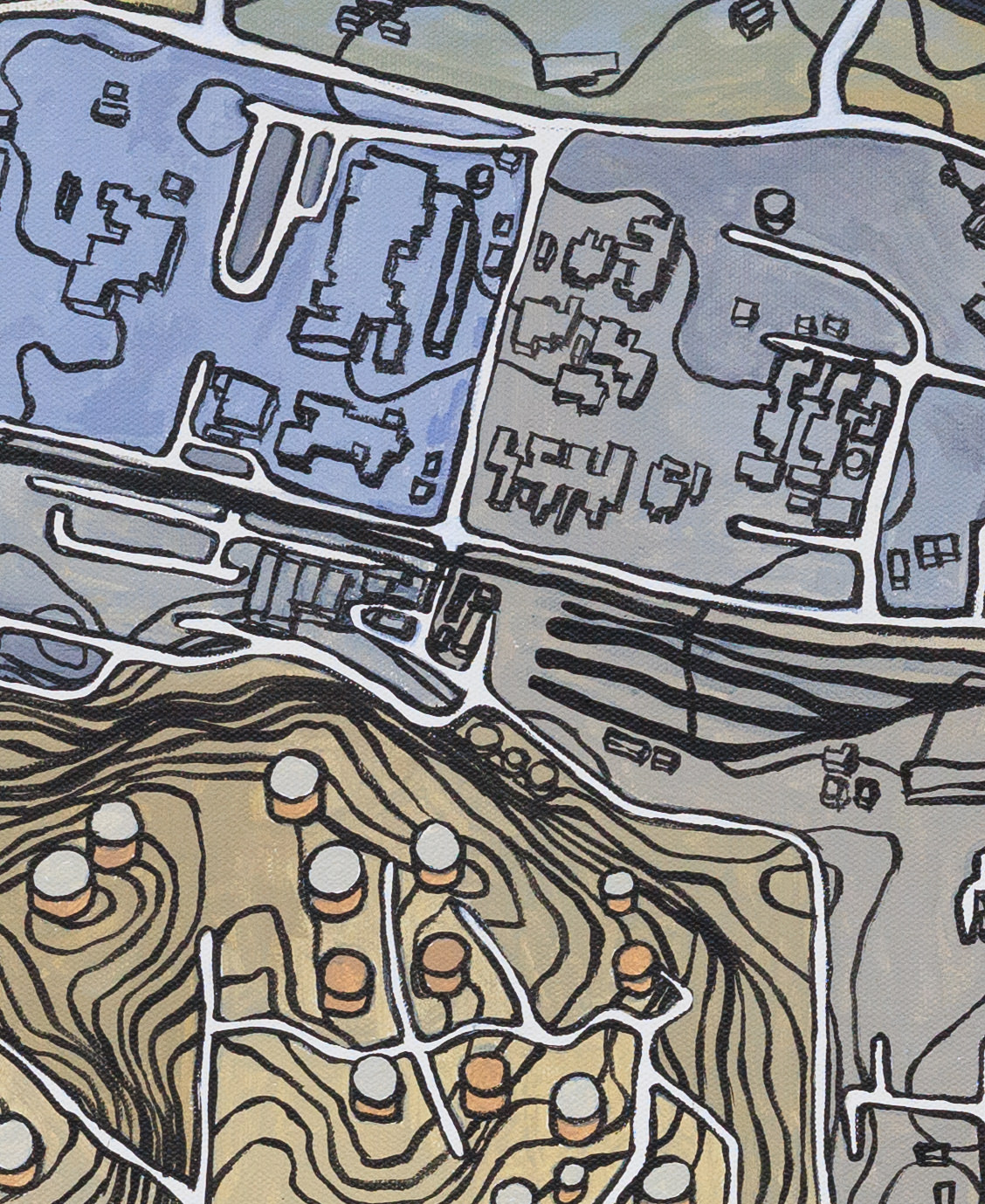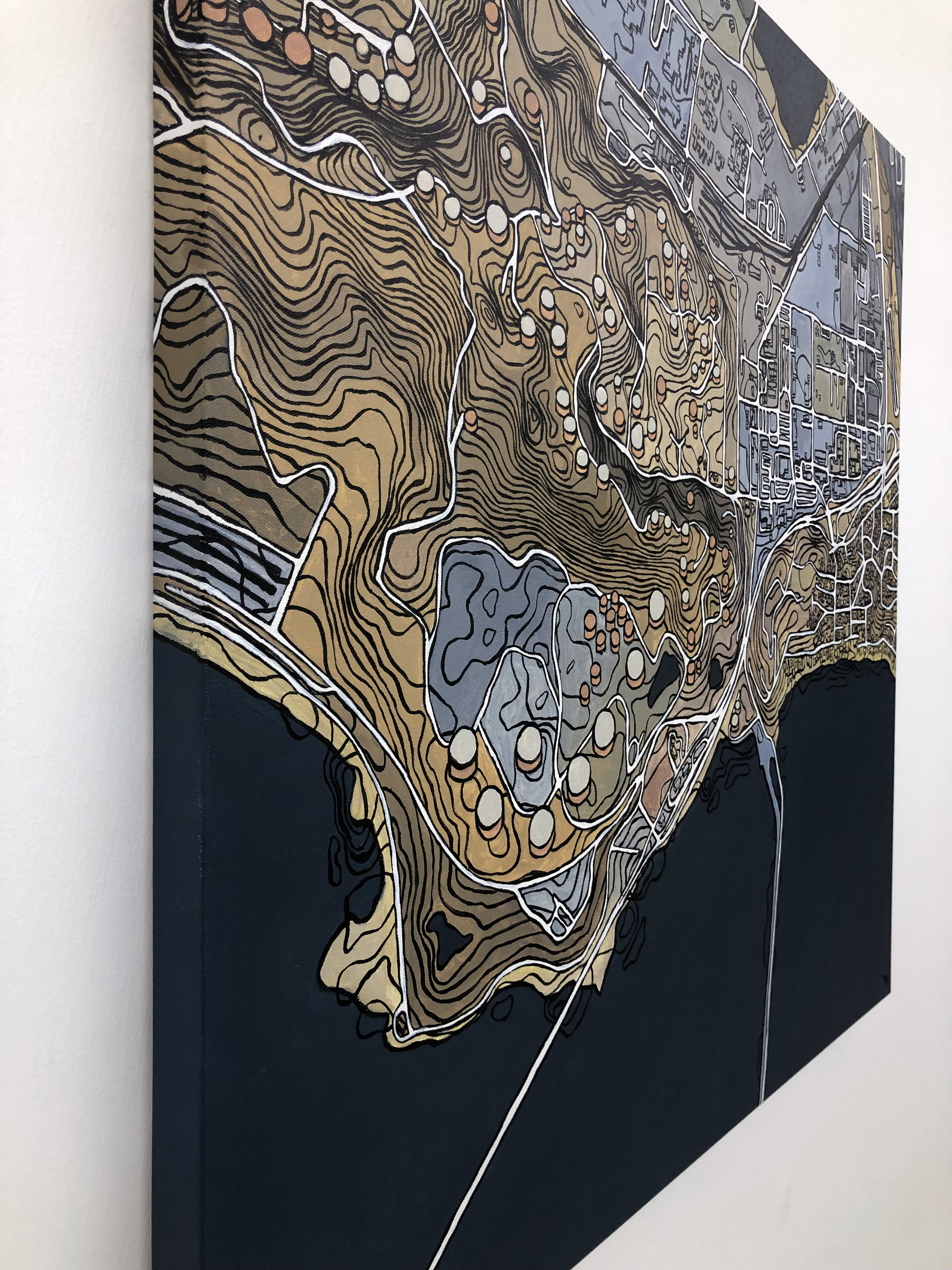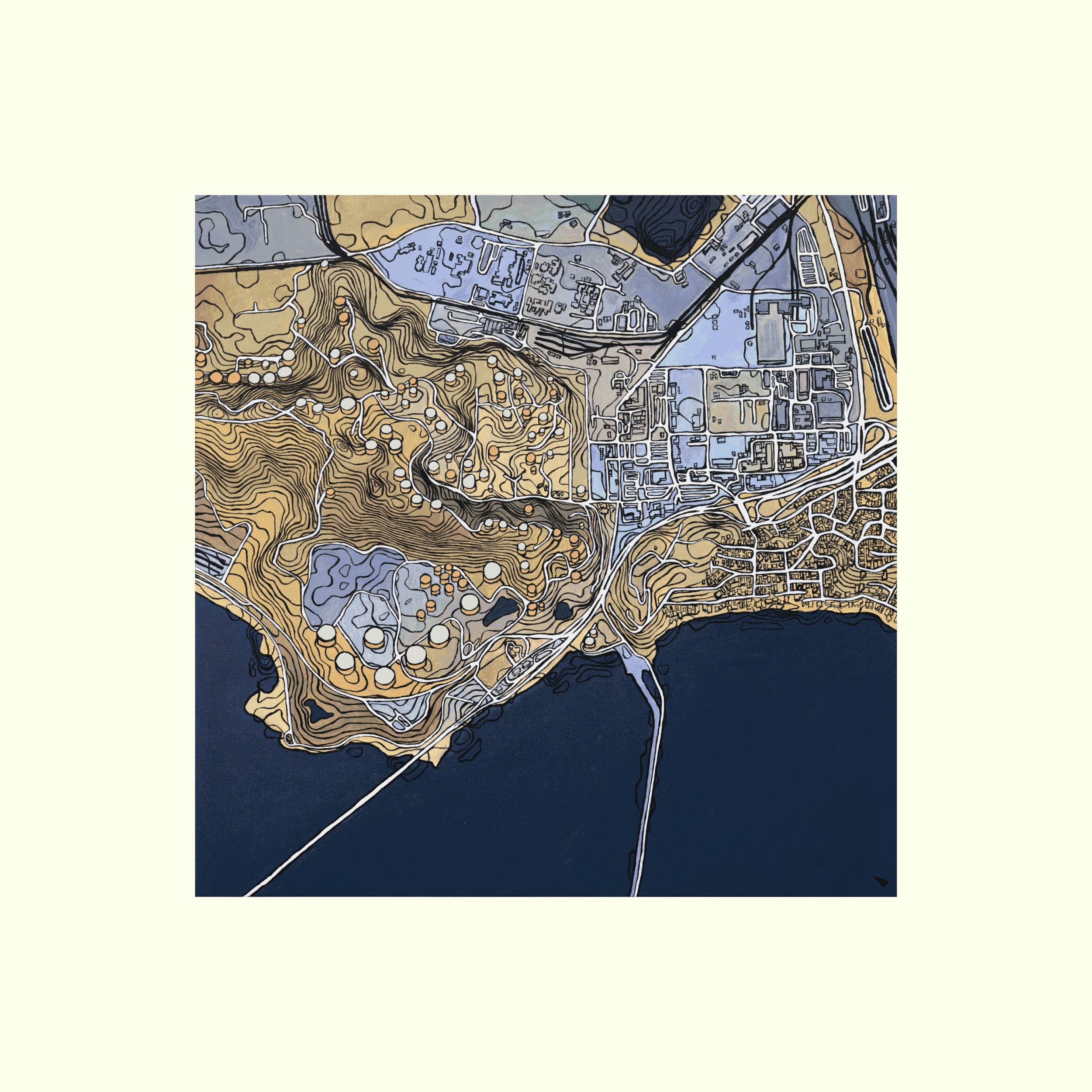Bz Zhang
Bz Zhang

Bz Zhang; Crude Neighbors: Chevron Refinery, Richmond, California, 2022; Acrylic on canvas; 36 x 36 in.

Bz Zhang; Crude Neighbors: Chevron Refinery, Richmond, California (detail), 2022; Acrylic on canvas; 36 x 36 in.

Bz Zhang; Crude Neighbors: Chevron Refinery, Richmond, California (detail), 2022; Acrylic on canvas; 36 x 36 in.

Bz Zhang; Crude Neighbors: Chevron Refinery, Richmond, California, 2022; Digital collage
CRUDE NEIGHBORS: CHEVRON REFINERY, RICHMOND, CALIFORNIA
Most publicly available representations of petrochemical landscapes are not particularly truthful about adjacencies, and thus are not truthful about impact and accountability. When oil infrastructures are adjacent to our homes and communities (as they always are at some scale), these images tend to not include both places at once — or otherwise misrepresent spatial violence. For instance, an online image search for Point Molate Beach and the adjacent Chevron refinery in Richmond, California, will yield photo-narratives of place that seem worlds apart.
Yet these two places, as community members and environmental justice organizers in Richmond will tell us, are only imagined as separate, reflecting existing structures of extractive capitalism and neocolonialism in purposefully omitting environmental disasters, toxic contamination, air pollution, and climate injustice. In reality, our experiences of petrochemical empire are embodied in every sense: pipelines through ancestral sites, refineries along beaches, pump jacks on street corners, wells across from bedroom windows, chemicals in lungs.
The axonometric — a historically East Asian drawing technique subsequently appropriated by Western architecture — is here reapplied as a landscape painting of the Chevron Refinery in Richmond, and its austere and intimate cartographic layers on Ohlone land. Using both digital and analog tools of art and architecture, and with sources ranging from the US Geological Survey, to municipal zoning maps, and environmental watchdog organizations, a new image of Richmond’s crude neighbor is constructed at 1”=250’ scale. This work puts forth a counternarrative in the production of public resources and solidarities along literal and figurative pipelines.
BIO
Bz Zhang is an artist, architect, organizer, and teacher based in Tongva territory (Los Angeles). Their work investigates physical and cultural construction as entangled processes, using disciplinary tools of art and architecture to imagine futures beyond settler colonialism, racial capitalism, and cis-heteropatriarchy. In Tense Renderings, they use architectural drawing to wonder aloud about representations of violence and the violence of representations. Bz received a Master of Architecture from the University of California, Berkeley, and a Bachelor of Arts with Honors in Visual Arts from Brown University. In their free time, they look for birds and trash in the Los Angeles River.
@BZ.STUDIO
BZ.STUDIO